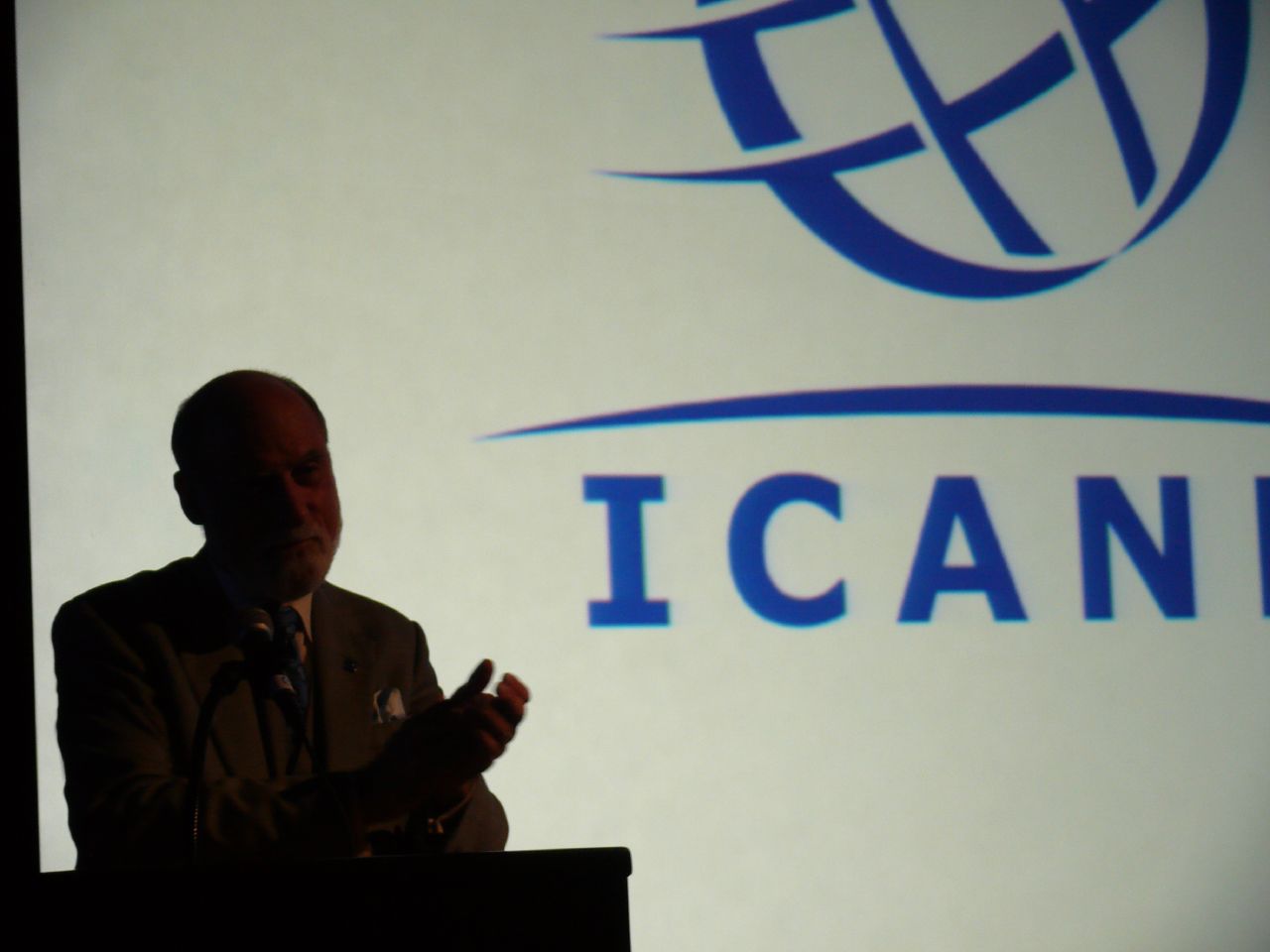Milton Mueller offers an insightful take on the recently concluded WCIT. Mueller characterizes some of the extreme ITU criticism as “ITU phobia”, which he notes: One notable feature of ITU phobia is that it takes the alternative internet institutions off the hook. They are inherently good – good by definition […]

Vint Cerf at ICANN by Veni (CC BY 2.0) https://flic.kr/p/3KWko9
Internet Governance
UN Internet Meeting About Who Pays, Not Who Rules
Should the Internet be treated like traditional phone services when it comes to regulation and pricing? That is the contentious question as the International Telecommunications Union, a United Nations agency with roots dating back to 1865 and the interconnection of telegraph services, meets in Dubai next week for the World Conference on International Telecommunications (WCIT). The WCIT is a treaty-writing event that has attracted growing attention given fears that the ITU and countries such as Russia plan to use it to press for greater control over the Internet.
My weekly technology column (Toronto Star version, homepage version) notes that there are certainly legitimate reasons for WCIT suspicion since the ITU lacks transparency and largely excludes public participation. For months, the ITU proposals scheduled for debate (known as International Telecommunications Regulations or ITRs) were shrouded in secrecy and the organization itself offered only limited opportunity for public participation. Moreover, some countries view the WCIT as an opportunity to increase their leverage over the Internet by proposing regulations that would increase governmental controls.
While these issues are cause for concern, proposals aimed at seizing control of Internet governance are unlikely to succeed and the reality is that governments already flex their regulatory muscles within the current U.S.-backed Internet governance framework.
The focus on a UN takeover of the Internet has obscured the real concern with the WCIT, namely efforts by telecom companies to find new sources of revenue by changing the way we pay for the Internet.
UN Internet Meeting About Who Pays, Not Who Rules
Appeared in the Toronto Star on November 27, 2012 as UN Internet Meeting About Who Pays, Not Who Rules Should the Internet be treated like traditional phone services when it comes to regulation and pricing? That is the contentious question as the International Telecommunications Union, a United Nations agency with […]
Internet Governance World Meets in Toronto Amid New Domains Controversy
After years of debate and discussion, ICANN last year unveiled a policy that opened the door to hundreds of new domain name extensions. While most Internet users are accustomed to the current generic (dot-com, dot-net, and dot-org) and country-code (dot-ca in Canada) extensions, ICANN’s plans will radically change the domain name landscape by creating hundreds of new extensions linked to brand names, geographic regions, and even generic words.
Internet Governance World Meets in Toronto Amid New Domains Controversy
Appeared in the Toronto Star on October 14, 2012 as Internet Governance World Meets in Toronto Amid New Domains Controversy The Internet governance world gathers in Toronto this week as the Internet Corporation for Assigned Names and Numbers (ICANN), the California-based non-profit corporation charged with the principal responsibility for maintaining […]






